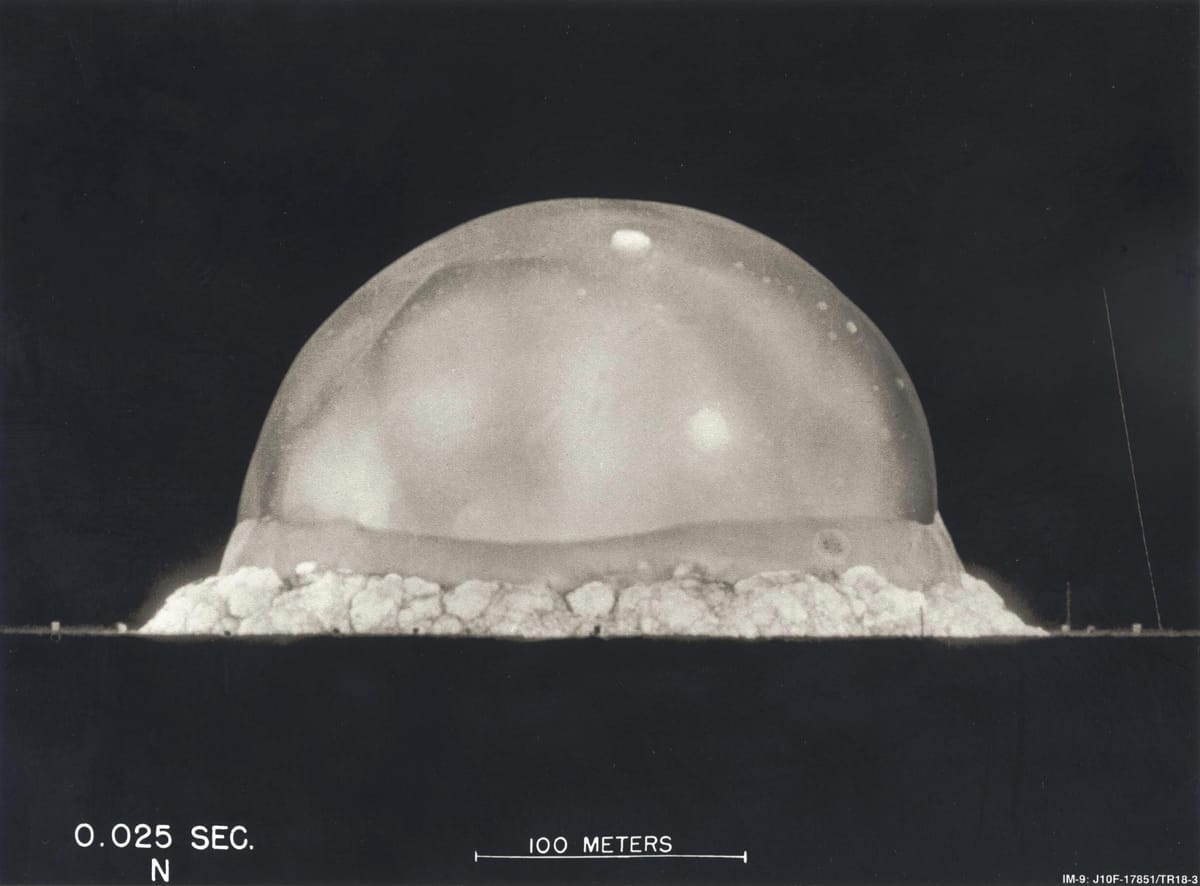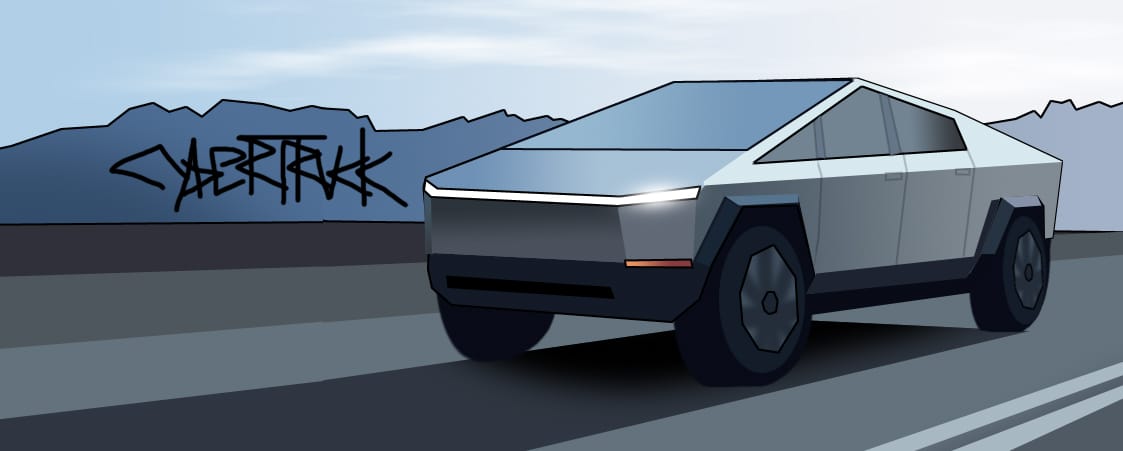This piece first appeared in the free Sequencer newsletter on September 19, 2024.
Yesterday, Atlantic staff writer Tom Nichols chastised Scientific American for their rare decision to endorse a presidential candidate, in which they make the case to their readers to cast votes for Kamala Harris against Donald Trump. This is the second time they’ve done this — the first was endorsing Joe Biden in 2020.
Nichols said a lot of things in his article, but his bottom line is that matters of policy — taxes, health care, reproductive rights, climate policy, etc., topics that are "standard-issue left-liberal" issues, in his words — are unrelated to science:
Although science and data play their role in debates around such issues, most of the policy choices they present are not specifically scientific questions: In the end, almost all political questions are about values—and how voters think about risks and rewards. Science cannot answer those questions; it can only tell us about the likely consequences of our choices.
This is a catastrophically silly thing to say. Not only does science play an absolutely central role around any of these debates — if climate change, to pick one off the top of the pile, isn't a scientific issue at its core, then what is? — but the practice of science is political in and of itself. The choice of what to study, how to improve the world, and what to delve into is itself a political statement. The Reagan administration’s choice to refuse to, say, allocate funds to AIDS research, or to even acknowledge the AIDS epidemic, was a political decision wrapped in the denial of what patients, doctors, and scientists were observing plain as day. Telling scientists and science magazines to stay away from politics is like telling accountants or garbage men to stay out of politics. Are budgets about values? Does keeping the streets clean cut to the core of the heart of man?
I have no idea what "politics" could possibly mean in Nichols’ context. Is it the day jobs of politicians and the universe of consultants, journalists, and scammers that orbit them? By what right do those people have a monopoly on how the rest of the country lives? When a legislator considers extending the child tax credit — a policy that scientific study shows relieves child poverty — where does science end and politics begin? In the context of another issue — abortion — Nichols took to Bluesky to explain.
You keep wanting to make a moral judgement into an unassailable scientific fact. It's *right* not to let women die in a parking lot. It's not "science."
— Tom Nichols (@radiofreetom.bsky.social) 2024-09-19T03:15:56.115Z
This is a non-sequitur. Any choice any human makes is a moral one if you want it to be. You can exclude any source of expertise on these grounds and reduce every decision to pure animal-level political decision making. If we have to think about politics as simple moral judgements, science, art, business, culture, and religion are all contributors to each person’s morals. If Scientific American should refrain from political endorsement, so should everyone else on Earth.
Scientific American’s editor-in-chief Laura Helmuth said in an email to Sequencer:
[Nichols has] been fixated on our inclusion of Harris’s support for abortion access in our endorsement. He claims abortion is a moral or political question and not a scientific question — but he’s using an expansive definition of “morality” and a trivializing definition of “science.”
The only objection to abortion comes from a certain type of religious belief, and the only moral stance on abortion is that it is immoral to deny basic health care to people because of a religious belief. (And don’t give me any of that made-up, edge-case bullshit about third-trimester situations that don’t involve catastrophic health outcomes.)
Nichols also refers to a 2023 study where Biden and Trump voters were shown a simulated Biden endorsement in the pages of Nature and then asked for their reaction.
The endorsement message caused large reductions in stated trust in Nature among Trump supporters. This distrust lowered the demand for COVID-related information provided by Nature, as evidenced by substantially reduced requests for Nature articles on vaccine efficacy when offered. The endorsement also reduced Trump supporters’ trust in scientists in general. The estimated effects on Biden supporters’ trust in Nature and scientists were positive, small and mostly statistically insignificant.
This is not a reason for a science publication to stay neutral. This is an endorsement of kowtowing to fascists. It is not the responsibility of any journal, scientist, or person to placate Trump voters by avoiding making them unhappy. Time and time again this strategy backfires politically and morally. And it's cowardly to boot.
The 2023 study is also deeply flawed. It amounts essentially to a political survey, which political journalists swear you shouldn't trust based on an n of 1. Even if we did, the reason why Trump voters supposedly distrust Nature after learning about a theoretical endorsement is plainly obvious: Trump voters, and really most American voters in general, are simply opposed to their political opponents on principle.
The study didn't test if Nature endorsing Trump would have any effect on Biden voters. Personally, I can say with all certainty that I would not trust a scientific publication that openly endorsed a fascist and a bigot who openly plans to create a dictatorship in our country.
I realize that my objections seem like I’m asking scientists to be morally neutral androids who have no feelings on important issues. Many decent people want to express their objections to Trump in the public square, regardless of their profession, and scientists are not required to be some cloistered monastic order. But policy choices are matters of judgment and belong in the realm of politics and democratic choice.
There are of course other explanations for the 2021 paper’s findings. First, it’s not a particularly rigorous experiment — it only studied how Trump voters would react to a Biden endorsement. Inexplicably it did not test whether Biden voters would have the same reaction, or if endorsing Trump would have an effect. Why treat Trump voters like they’re so unique? How can we draw such a broad conclusion from an experiment that only tests in one direction?
Second, people of all political stripes react negatively when any institution appears to be politicized, whether it’s a science magazine or the Supreme Court, as one 2024 study found, regardless of whether that politicization aligns with a person’s own beliefs. People hate politics. That is a good reason for the Supreme Court, a body that has direct power over people’s lives, to remain apolitical, even if that is probably impossible; it is not a good reason for Scientific American, or any science magazine, or any scientist, to remain on the sideline.
Later in her email, Helmuth said:
“There are a lot of science subjects that have been politicized, and I agree that that’s a shame. But we’re not the ones leading to a distrust of science — the blame for that lies in a century-long effort by conservatives to demonize science (literally demonize it, saying science is doing the devil’s work trying to teach kids about evolution over creationism). They’ve come for climate science, evolution, vaccines, gender, even the age of the fucking Earth, and we’re not writing for them. We’re not going to both-sides issues where the science — and I get to define “science” every bit as much as Tom claims to get to define it — the SCIENCE shows that one side is right and the other side is wrong.
This is a debate that has gone on for so much longer than Nichols appears to have thought about. In Buck v. Bell, the Supreme Court ruled that eugenics — a racist pseudoscience — can give legal standing to sterilize a woman against her will. Should scientists have weighed in there? Should scientists have tried to stop the development and use of the atomic bomb? (They did.) Should scientists weigh in on whether to eradicate polio?
The most annoying part of all this is the condescension. A certified politics knower like Nichols wants to wag his finger at people whose activities he deems unhelpful or even counterproductive. Fortunately it doesn't go both ways — science is a welcoming field that anybody can contribute to. Go birding! Join an astronomy club! Get involved in community science efforts! Whatever it is, I welcome Nichols’s continuing science education.



